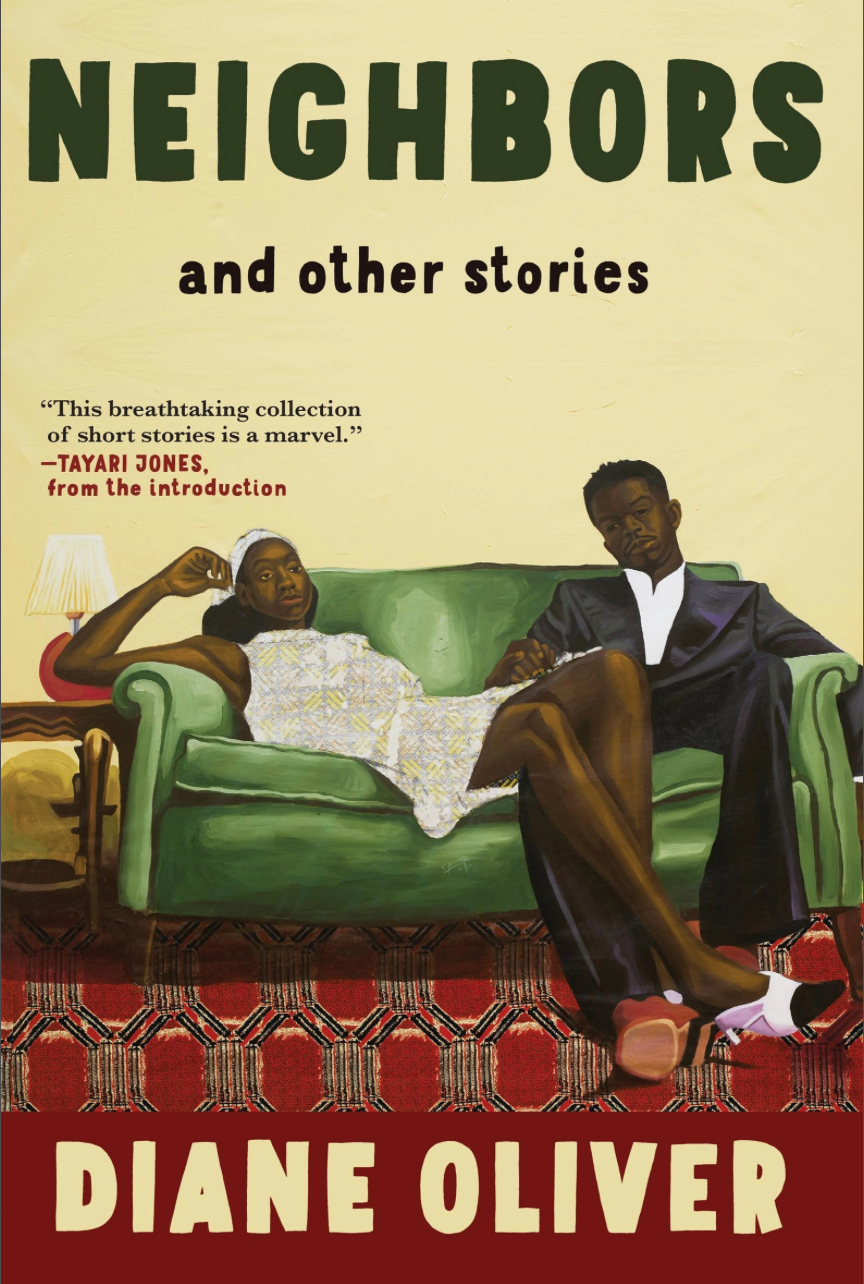
Neighbours and Other Stories
There is perhaps no other art form that makes time travel so vividly possible as literature. In Diane Oliver’s collection of short stories Neighbours and other stories, we are in the USA of the 1960s, a decade known for protest and political upheaval. The so-called racial segregation. which determines everyday life in the USA, especially in the southern states, is beginning to crack, and the changes which come with this are dealt by Oliver through her literature: her short story “Before Twilight” is about a group of young people, in a restaurant with a prescribed area for Afro-American people, who breaks this divide and dare to stage a sit-in protest. In “The Closet on the Top Floor” we accompany a young woman through her first year at university, where she is the only POC. And in “Spiders Cry Without Tears” a white woman marries a widowed black doctor – to the annoyance of those around her.
Contributing to the political developments demands a high price from the Black individuals in Oliver’s short stories. Her best-known story, “Neighbours”, is based on the story of Ruby Bridges and is about a small boy who is going to be the first Black person to attend a white school in his neighbourhood. On the eve of his first day at school, his family is severely threatened and plagued by doubts. “I guess we do what we have to do”, his mother soberly concludes. Oliver shines a light on the psychological and physical risks that Black people are exposed to in the fight for their rights. Some characters break under the pressure of having to take a trailblazing role in everyday life. This is so for Ellie, the first and only Black person at her university: “She was tired of being the experiment”.
The author herself was also active in settings that had previously been predominantly reserved for white people. For example, she took part in the exclusive 1965 Iowa Writers’ Workshop. Her literary career, however, came to an early end: at just 22 years old Oliver lost her life in a motorcycle accident. Only four of her short stories were published in her lifetime; her work fell into oblivion until the literary critic Michael A. Gonzales recently drew attention to her short stories. Simultaneous to the first publication of the short story volume in the USA, the German translation is also being published by Brigitte Jakobeit and Volker Oldenburg here in Germany. The intuitive German version captures Oliver’s simple but captivating style and takes up the historicity of the stories: where necessary, outdated terms are used in the translation (but not always spelled out) which serve the representation of everyday racism.
Anyone who reads Oliver’s stories carefully will understand that they are only time travel to some extent: her depictions of discrimination, domestic violence and patriarchal oppression also have more to do with our reality a good sixty years later than many readers would prefer. The thorough descriptions of everyday life meticulously trace how the political environment manifests itself in the microcosm of the private sphere – in families, communities, or friendship groups. The focus is not on the prominent activists or radical movements, but rather, for example, on the single mother of four children who is not called in to see the doctor or the maid who makes stains on the couch and seeks her escape. This polyphony is the big strength of Diane Oliver’s short stories, some of which resonate for a long time thereafter.
Order the book here and support us! The work behind poco.lit. is done by us – Anna und Lucy. If you’d like to order this book and want to support us at the same time, you can do so from here and we will get a small commission – but the price you pay will be unaffected.
